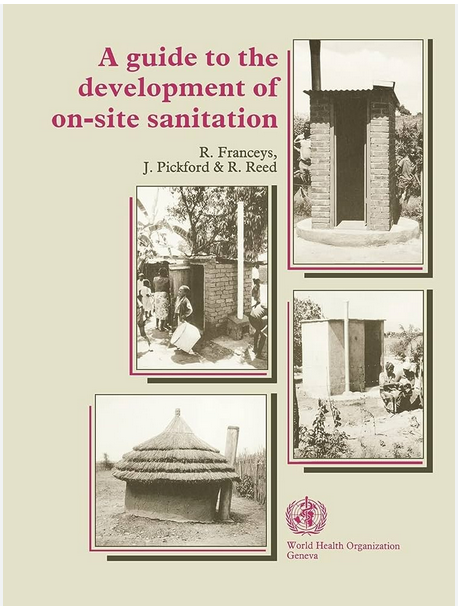Still have questions?
You could not find the information you were looking for? Please contact our helpdesk team of experts for direct and individual support.

Author: Franceys, R., Pickford, J., Reed, R.
Year: 1992
Publisher: WHO
There has been considerable awareness of community water supply needs, but the problems of excrete and wastewater disposal have received less attention. In order to focus attention on these problems, “sanitation” became used and understood by people worldwide to refer only to excrete and wastewater disposal. A WHO Study Group in 1986 formally adopted this meaning by defining sanitation as “the means of collecting and disposing of excrete and community liquid wastes in a hygienic way so as not to
endanger the health of individuals and the community as a whole” (WHO, 1987a). Hygienic disposal that does not endanger health should be the underlying objective of all
sanitation programmes.
The cost of a sewerage system (which is usually more than four times that of on-site alternatives) and its requirement of a piped water supply preclude its adoption in the.many communities in developing countries that lack adequate sanitation. On-site disposal, dealing with excrete where it is deposited, can provide a hygienic and,satisfactory solution for such communities
"*" indicates required fields
You could not find the information you were looking for? Please contact our helpdesk team of experts for direct and individual support.


This website uses cookies so that we can provide you with the best user experience possible. Cookie information is stored in your browser and performs functions such as recognising you when you return to our website and helping our team to understand which sections of the website you find most interesting and useful.
Strictly Necessary Cookie should be enabled at all times so that we can save your preferences for cookie settings.
If you disable this cookie, we will not be able to save your preferences. This means that every time you visit this website you will need to enable or disable cookies again.
This website uses Google Tag Manager to collect anonymous information such as the number of visitors to the site, and the most popular pages.
Keeping this cookie enabled helps us to improve our website.
Please enable Strictly Necessary Cookies first so that we can save your preferences!
More information about our Cookie Policy
